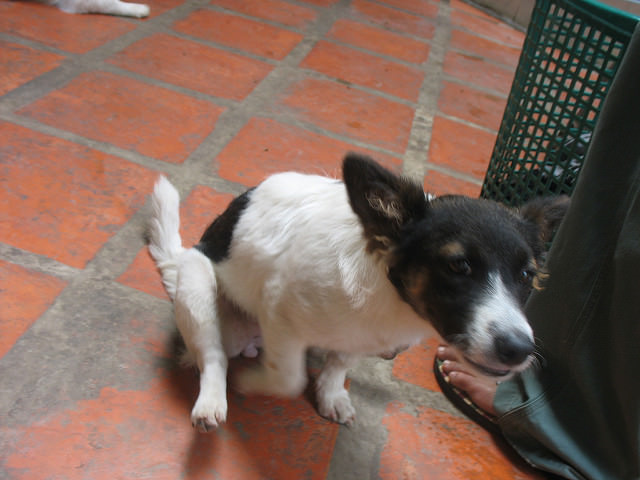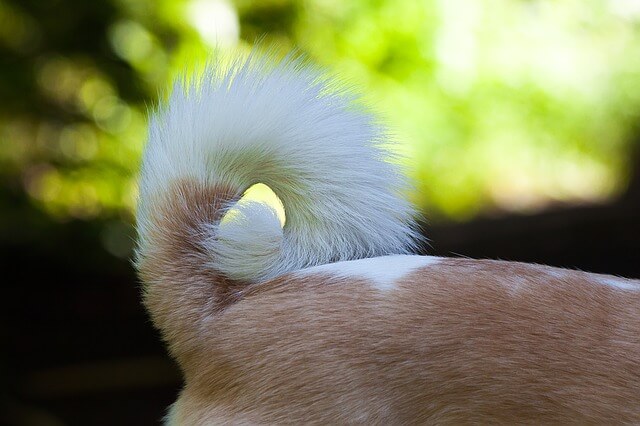People think watching a dog drag his rear across the floor (aka “scooting”) is either gross or funny (or both) and I would agree that it is gross, since I know a lot about dog butts! Your dog is not doing the “sit and spin” to amuse you. He is more likely either itching or in pain.
Your dog has glands located on either side of her rectum, which create a very strong smelling secretion. Similar structures in the skunk create his distinctive smell. For dogs, they seem to serve no purpose other than marking and identification. Like a name tag or business card, they tag his body and his feces as belonging to him.

The glands are a problem.
When the glands feel itchy or uncomfortable, your dog will lick or scoot to try to address the issue. For many years, dog owners were advised to squeeze the anal sacs every time the dog was bathed. Now we know that this may not have been the best advice. Dogs that have no issues with the glands can empty them each time they defecate, so squeezing them is unnecessary and can create a problem where there is none, creating scar tissue and trauma to the anal area (which is very sensitive).
Dogs that have issues with their glands should not have their glands expressed (unless anesthetized by a veterinarian) because of the pain associated with expression. Just because your dog will tolerate something, does not mean that it should tolerate something. If your dog lets you express her anal glands, when she has trouble back there, she is a very tolerant animal. We know that the glands have many nerves and expression is likely to be very painful.
The location of the glands can cause further issues.
Because of their location which is so close to germs in the feces, the glands can become infected, so your dog might be scooting to relieve pressure and pain. Dogs dragging their rears can sometimes be a normal method of removing debris or a passing itch, but any dog that scoots more than occasionally may have a problem.

If you see your dog doing this, try to check the area. Look for swelling or redness around the anus and also be aware of any really bad smelling fluid that your dog may be leaking. If you notice a foul, sometimes fishy odor on your dog or anywhere she lies, it could be a sign that the glands are abnormal. Leaking foul odor at odd times it can be a warning to get help.
If the glands become infected, they can produce an abscess (pocket of pus) that will rupture out onto the skin near the rectum. Once this happens, your dog will most certainly be showing you by scooting or licking. Any open wound needs veterinary attention as soon as possible.
Scooting is a very important sign because it could indicate pain and infection. It needs to be looked into by a veterinarian. Do not be tempted to try and express the infected glands yourself. Once the infection is present, your handling is likely to drive infected matter deeper into the tissues and will certainly be uncomfortable for your dog. Make sure your scooting dog gets the help he needs and see your vet!
 Toledo, United States.
Toledo, United States.